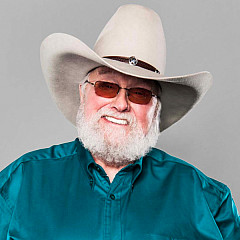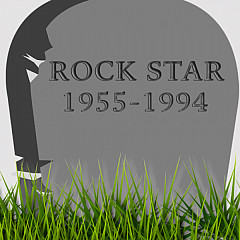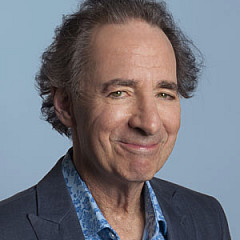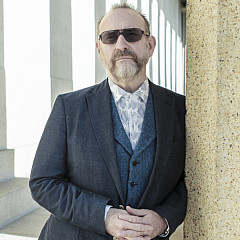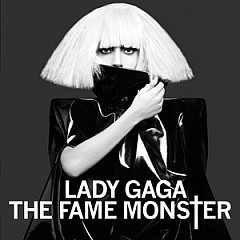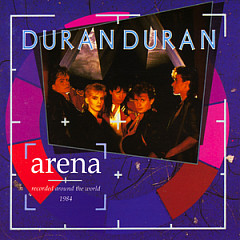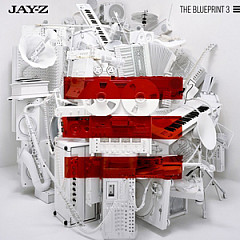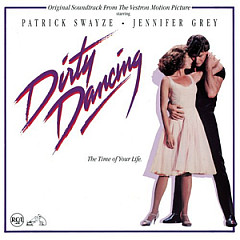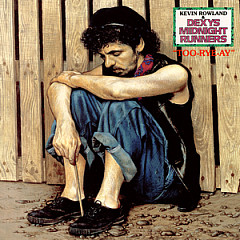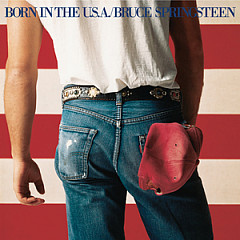Aaron is incredibly humble about his talent. He doesn't think of himself as a great drummer, for instance, yet he regularly teaches drumming. At heart, he is a songwriter – one who just happened to begin his music career in a very loud and aggressive rock band.
When Gillespie says that this spiritual, worship side of his musical personality is the "real Aaron," it's easy to believe him. Gillespie is extremely open and honest in conversation; he really has nothing to hide. He's been married for a while and has a child, and just may be happier than he's ever been. Such contentment is already starting to come through in his songwriting. This transparency should come as no great surprise because – more so than many other popular artists – what you see is pretty much what you get with Aaron Gillespie.
 Dan MacIntosh (Songfacts): How are you doing?
Dan MacIntosh (Songfacts): How are you doing?Aaron Gillespie: I'm good, man. I'm in Tennessee doing some small acoustic type things and hanging out. Just eating some Sushi, actually. Finishing up lunch.
Songfacts: Well, I wanted to first ask you sort of a general question. You're doing the Invisible Children Benefit out here in Los Angeles. Why do you like to do these kinds of performances?
Gillespie: I like the little stripped down thing, number one. But number two, just going to the cause. In our day, if you have a voice - if you're a Twitter personality, or you're a musician or whatever - you should use that voice for good. That's a generalized answer, but I really feel like people tend to do most things for their own gain. I've been to Uganda and I know the reality of what goes on there. Anything that I can do to get behind the cause, I want to do. So for me flying across the country for a few hours to play some songs, it's a no-brainer.
Songfacts: I'm really impressed by your All Things worship album. I listened to the songs and I was really surprised that you wrote most of them, as well. Is that something that comes easily to you, writing worship type songs?
Gillespie: As a kid, I kind of did it a bit. But in my later life now, I haven't done it much. So last year I started taking a stab at it. I have a songwriting contract with a company called Razor & Tie, so I write songs in general all the time. Those songs are really personal to me, in my personal worship life, so it's really important to me to see if I could get that out. And I think we succeeded.
Songfacts: Well, when you perform in concert, do you mix all phases of your career? Do you do songs from The Almost as well as worship songs, or do you just concentrate on one thing?
Gillespie: It's split up. In my worship project, it's just a worship service. We have a speaker and it's only two or three of us on stage. I've played drums standing up, it's kind of odd. And The Almost, it's a full band.
Songfacts: It's so different from what you were doing with Underoath. It almost seems like this is a different person. Is this the real Aaron coming out?
As a 17-18 year old kid, I lived around the corner from this Christian bookstore for years. After I got a phone call about this, and they told me this style of music, I went to the Christian bookstore, and they had this boombox. Each record, you could take the demo copy and play it on headphones. I went and bought everything that I thought looked remotely like hard music and listened to it, trying to do research. So I guess the statement that you're making is true. I know all about that music now. But I learned because of necessity. I've never told that to an interviewer. Interesting. I learned out of necessity.
Songfacts: Did you grow to love it?
Gillespie: I did, and do. To be honest, a lot of the modern stuff now, the things that kids are playing now, I don't really like. I don't really like the dub-step mixed with hard core music - I don't really understand that whole thing. I still really love Refused and Converge and stuff like that. That's the music that I connected with. Botch, like in the hardcore world, that's what I really liked. I always liked rock and roll type music, but newer hardcore, that's the kind I don't really get. It's not to say it isn't talented and I don't respect musicians. I just don't really understand and/or get what's going on in that world now.
Songfacts: Since we're talking about Underoath, there's one song that I did a little research on. I was trying to figure out what the song's about. And I found a number of different opinions, and I was wondering maybe if you might care to kind of help explain an Underoath song. Would you be up for that?
Gillespie: Sure.
Songfacts: "It's Dangerous Business Walking Out Your Front Door."
So we had this morbid idea that there would be this guy, he would be driving a car. And if you read the lyrics, the verse involves a car accident. There's this guy and he's driving this car, and he's so in love with this girl that he decides to kill them both. He's so in love with her that he realizes it is impossible to love her the way he's supposed to, so he decides to just drive off the road. That's the narrative line of the story in the song. But it's really about loving someone and knowing that you'll never be able, in your capacity, to love them the proper way.
Songfacts: Wow. Well, that really does clarify. Let me ask you about one more Underoath song. Tell me about "Reinventing Your Exit."
Gillespie: That song is about when somebody puts you between a rock and a hard place. Like all your grace has run out, all your love for a person has run out, they've just stepped on you and stepped on you and stepped on you, and you're really just stuck and you don't really know what's next. You're like, well, here I am, I'm stuck up against the wall and there's nothing I can do.
Songfacts: Your primary instrument is drums, although I imagine you play other instruments, right?
Gillespie: Yeah, on Anthem Song I played all the instruments and on the first Almost record, I play all the instruments, as well.
Songfacts: When you write songs, is there one particular instrument that you generally write on?
Gillespie: Just guitar. I wish I could play piano well enough to write on piano. But I'm kind of a real hack at piano. I'm a drummer, but I don't know that I'm really great at any one instrument. I'm more of a songwriter than I am anything. I play drums, but I'm not really great at it. I'm not one of those guys who wants to read magazines on how to become an amazing guitar player or an amazing drummer, take 17 lessons. It's not really my gifting or something that I care about.
Songfacts: I recently saw the Foo Fighters in concert. Dave plays guitar in that band, but he's a drummer at heart. And one point during the show he did an acoustic set. And he said, "I play guitar like the drums. I'll clean it up, but I kind of beat the crap out of the guitar."
Gillespie: Yeah, I play guitar the exact same way.
Songfacts: Do you really?
Gillespie: All my acoustic guitars have holes in the top.
Songfacts: Really? (Laughing)
Gillespie: That's the curse. That's the drummers' curse.
Songfacts: So you have to get the extra strength acoustic guitars, huh?
Gillespie: I use these like 13 gauge strings on acoustic guitar. Which is like the thickest string you can buy for acoustic guitar. It's pretty bad.
Songfacts: Do you still give drum lessons?
Gillespie: I do once a year for a month, or two months. I'm at the tail end of that stretch right now; I have a few more weeks.
Songfacts: Have you mentored anybody who has gone on to any kind of fame?
 Gillespie: I don't think so. I just started last year, so kids come from all over the country and I don't really keep up with them - that'd be kind of creepy. They come from all over the country and some of them are beginners and very youthful in their drumming. I've taught a few guys that have really surprised me. I taught one kid who was 15 and left-handed, and he was one of the best drummers I've ever seen. I'm sure he'll go on to do big things. You can only do so much while you're in high school.
Gillespie: I don't think so. I just started last year, so kids come from all over the country and I don't really keep up with them - that'd be kind of creepy. They come from all over the country and some of them are beginners and very youthful in their drumming. I've taught a few guys that have really surprised me. I taught one kid who was 15 and left-handed, and he was one of the best drummers I've ever seen. I'm sure he'll go on to do big things. You can only do so much while you're in high school.Songfacts: So I wanted to find out what you're working on right now, because I imagine you're touring to support All Things, but is there another album by The Almost that's in the works?
Gillespie: Yeah, we're halfway through writing it right now.
Songfacts: Really? What can you tell me about it?
Gillespie: Not much, to be honest. It's real different. I think every artist feels that way on some things. It's expected. But I really can't divulge too much because it's not recorded yet. If we'd recorded it, I could tell you that. But I can't talk about it.
Songfacts: Can you tell me a little bit about what you're writing about?
Gillespie: It's interesting, because every other time in my life writing music, I've had the same set of issues; self doubt, relationship issues, and trying to find out what God had for me. And now I'm in a situation where I know those things. I absolutely know those things. I'm a father, I have a child, I've been married for five years. I'm just in a different place. So the songs take on a different shape. I feel like a song will only exist in two realms. The song is only a melody and a lyric. There's nothing else to a song. I get caught up so much in my recording and guitar riffs, but a song really only is two things, a melody and a lyric. I think what a lyric really changes, when your heart changes and you write about something different, then the melody changes, and then things are just completely different.
So that's why I feel like these songs are so different, because they're written from such a different place. They're written from a place of maybe I'm where I'm supposed to be. I think I'm where I'm supposed to be. I think that I'm following God. I look at my child and I go, it's the best thing I've ever done. You look at a baby and you go, "This is perfection." And God used me and my wife, and we could have a part in perfection, even though we're completely and inalienably imperfect. But it's from that place, which is a very different, a very foreign place to me. And that's good.
Songfacts: Musicians and songwriters, unlike a lot of us, they can look at their songs and it's almost like a journal of personal growth.
Gillespie: It is. It's almost a bit of a manifesto. When you have a lot of records out, you can look back on them and go, Oh, wow. Like, you recalling those two songs you just asked about, I wrote those songs when I was 19, 20 years old. And I'm almost 30. So it's one of those things where you look back on that and you're like, wow, that was really juvenile. But at the same time, it's where you were. It's interesting to look back on and think about it.
December 7, 2011
More Songwriter Interviews

